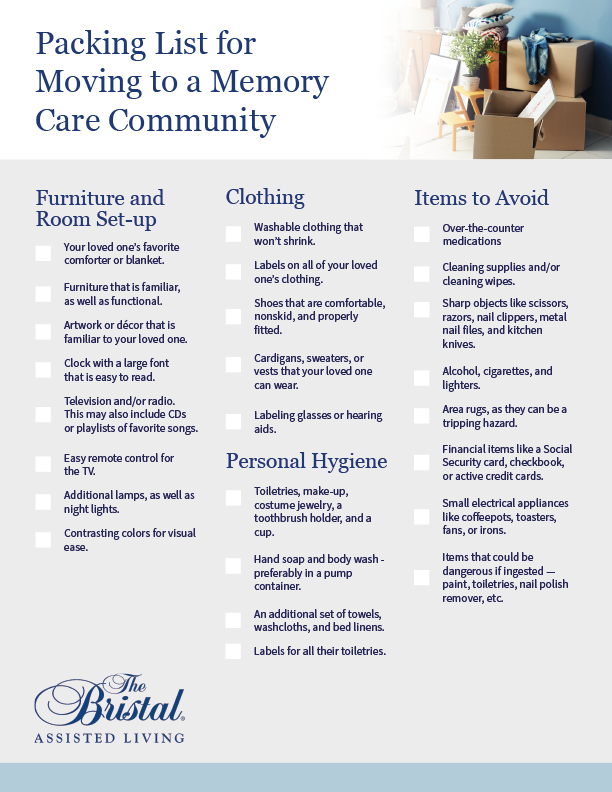Family-Oriented Facilities Offering Personalized Alzheimers Care Charlotte
Family-Oriented Facilities Offering Personalized Alzheimers Care Charlotte
Blog Article
Producing a Safe and Supportive Environment for Alzheimer's Care
The development of a secure and encouraging atmosphere for individuals with Alzheimer's is vital in improving their quality of life. Discovering these complex strategies can reveal crucial understandings right into effective caregiving strategies that may transform the daily experiences of both clients and caretakers.
Understanding Alzheimer's Needs
Regularly, people with Alzheimer's condition display a variety of needs that need customized techniques to care. As the problem advances, cognitive decline materializes in different ways, affecting memory, reasoning, and even the capability to execute day-to-day tasks. Caretakers should identify these developing requirements to give suitable support and make certain a better of life for those affected.
One essential aspect of comprehending Alzheimer's demands is identifying the value of routine and familiarity. Individuals commonly find convenience in well established patterns, which can minimize anxiousness and complication. Caretakers must strive to produce structured everyday schedules that incorporate significant activities lined up with the person's capacities and passions.
Additionally, reliable interaction is extremely important. People with Alzheimer's may have a hard time to reveal themselves or comprehend complicated language. Caretakers must use straightforward, clear language, usage non-verbal hints, and method active listening to cultivate understanding and connection.
Caretakers need to urge involvement in neighborhood activities or family gatherings, advertising a feeling of belonging and purpose. Understanding these diverse requirements is important for producing a supportive care environment.
Designing a Safe Home
Creating a safe home for people with Alzheimer's disease is essential to promoting and decreasing threats independence. Make certain that paths are well-lit and clear, as proper illumination minimizes disorientation and enhances flexibility.
Including flexible attributes is also important. Set up grab bars in bathrooms and near stairways, and consider utilizing non-slip mats in wet areas. Additionally, using contrasting shades for wall surfaces and floors can aid in identifying rooms, assisting to alleviate confusion.
Familiarity is essential for individuals with Alzheimer's. Individualizing the setting with familiar objects and pictures can enhance a sense of belonging and safety - Alzheimers Care Charlotte. It is likewise helpful to have a marked location for everyday tasks, such as reading or crafting, which can offer framework to their day
Last but not least, carrying out a protected outside space permits for risk-free exploration while attaching with nature. By attentively making the home environment, caretakers can dramatically improve the top quality of life for people coping with Alzheimer's disease.
Enhancing Interaction Skills

Non-verbal communication, consisting of face expressions, motions, and touch, plays an essential role in sharing empathy and understanding. Maintaining eye call and a tranquil demeanor can improve the comfort degree of the individual, advertising a feeling of security.
In addition, it is very important to practice active listening. This entails being fully present, revealing patience, and allowing the individual to reveal themselves without disruption. Rep might be required; caretakers need to be prepared to revisit topics or concerns, as people with Alzheimer's may deal with memory recall.
Additionally, making use of aesthetic help or hints, such as photos or familiar things, can promote acknowledgment and involvement. Ultimately, improving interaction skills is about developing depend on and creating an atmosphere where individuals really feel heard, valued, and recognized, thus enhancing their top quality of life.
Encouraging Social Communication
Cultivating significant social interactions can greatly boost the health of people with Alzheimer's illness. Engaging with others not just assists battle sensations of seclusion yet also promotes cognitive feature and psychological health and wellness. Structured social activities, such as group crafts, arts and video games, or music therapy, create chances for locals to get in touch with peers and caretakers, which can bring about boosted state of mind and decreased anxiousness.
Creating an inviting setting that urges socializing is essential. This can be attained by preparing communal areas that assist in communication, such as cozy seating areas or task areas. Furthermore, including culturally pertinent and acquainted activities can trigger memories and motivate involvement, allowing individuals with Alzheimer's to really feel even more linked to their previous experiences.
Moreover, caretakers should be trained to acknowledge and advertise social engagement amongst residents. By prioritizing social communication, we can substantially enhance the lives of those living with Alzheimer's, cultivating a feeling of community and belonging.
Sustaining Caretaker Health

To sustain caregivers, companies must provide routine training and academic sources to enhance their understanding of Alzheimer's condition and caregiving techniques. Providing accessibility to reprieve treatment services allows caregivers to take needed breaks, lowering tension and fatigue - Alzheimers Care Charlotte. In addition, promoting a community through support groups can help with emotional sharing and the exchange of functional guidance among caretakers, this hyperlink producing a network of shared assistance
Psychological health resources, such as counseling services, can additionally be crucial in addressing the emotional toll caregiving can take. By prioritizing caregiver wellness, we produce a more sustainable caregiving setting that not only benefits the caretakers themselves yet likewise enhances the overall top quality of treatment obtained by individuals with Alzheimer's. Ultimately, supporting caretakers is an essential component in fostering a effective and compassionate treatment setting.
Conclusion
To conclude, the production of a secure and supportive setting for people with Alzheimer's is important to enhancing their lifestyle. By prioritizing safety and security via thoughtful style, fostering emotional health with familiar elements, and advertising interaction with structured routines, caretakers can significantly impact the overall experience of those influenced by this problem. Sustaining caretaker wellness is essential, as it inevitably contributes to a more effective and caring care environment.
Repetition may be essential; caretakers ought to be prepared to take another look at questions or subjects, as people with Alzheimer's might struggle with memory recall.

Report this page